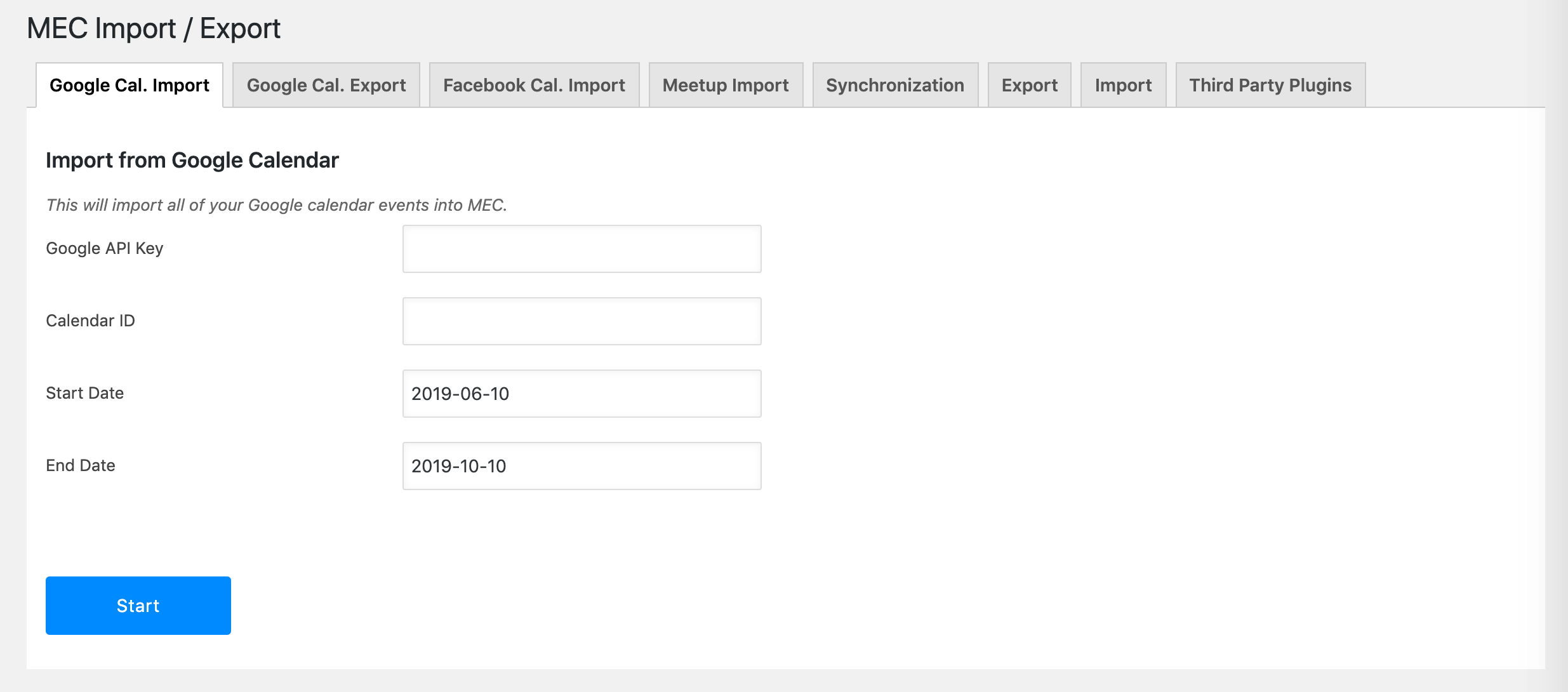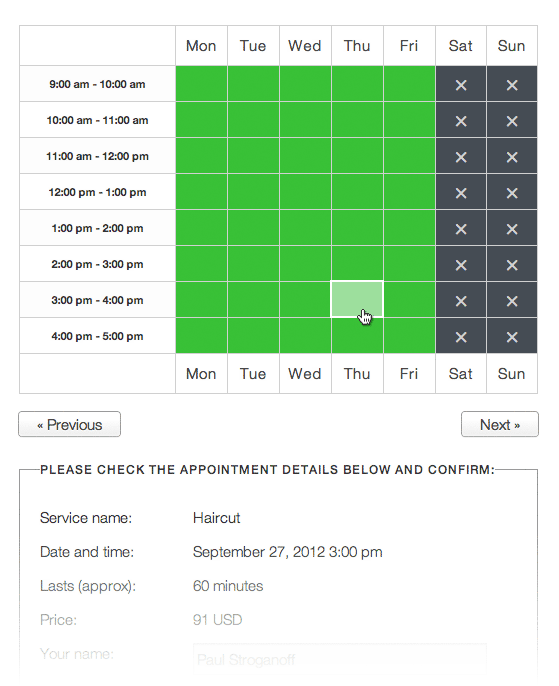Many WordPress sites incorporate event scheduling. From performances to appointments to rentals, being able to let users purchase tickets or claim time slots is key.
Fortunately, though WordPress doesn’t enable these functions out of the box, there’s a plugin you can use. Modern Events Calendar is an easy way to manage events of all kinds on your WordPress site.
In this post, we’ll walk you through some of Modern Events Calendar’s key features to show you how to manage online bookings. Let’s get started!
How to Manage Online Bookings With Modern Events Calendar (7 Key Features)
While many of the features below are available with the free version of the plugin, Modern Events Calendar Lite, some will require a license for the premium version. We’ve made sure to point them out to you. Pricing for Modern Events Calendar Pro starts at $55 for lifetime auto-updates and one year of premium support.
1. Display Events in the Optimal Format
There are many different ways to display events on a website. Which one is best for you will depend on the type of events you plan to feature.
For instance, haircut appointments, electrician services, and other events where there are multiple time slots available on any given date can benefit from a daily view:

On the other hand, if you manage a performance venue and want to show your site’s visitors who’s playing when, a monthly calendar may be more effective:

With Modern Events Calendar, you can take your pick of event display formats or ‘skins’. The plugin includes almost fifty different ways to share your upcoming events, appointments, or rentals, including:
- Yearly, monthly, and weekly calendars
- Grids (seven styles)
- Lists (five styles)
- Sliders (five styles)
- Carousels (three styles)
- Countdowns (three styles)
- Timetables (Pro only)
- Masonry tiles (Pro only)
Whichever skin you choose, you’ll be able to easily implement it with the plugin’s shortcode generator. Simply navigate to M.E. Calendar > Shortcodes and find the one that corresponds to your desired format.
2. Send Notifications Regarding Bookings
Email notifications about upcoming events are an efficient and effective way of helping your customers remember important dates, times, and locations. If you acquire Modern Events Calendar Pro, you can easily send automated reminders to all your customers:

The plugin enables you to craft custom messages right from your WordPress dashboard to streamline the process. Plus, you can also send email notifications for other purposes, including:
- Confirming a user’s successful booking
- Asking for booking verification from a user
- Alerting administrators to new bookings
- Informing users of new events available for registration
3. Create Profiles to Keep Users Apprised of Upcoming Events
In addition to sending out email reminders, you can also create user profiles for all your event attendees. This is especially helpful for your users if they tend to register for more than one event at a time.
For example, perhaps you offer online courses and a user wants to enroll in two complimentary classes at the same time:

Whatever the situation, profiles can help your users keep track of all their upcoming commitments. Displaying user profiles takes nothing more than a simple shortcode and the Modern Events Calendar Lite plugin.
4. Sell Variable Tickets to Give Users Options
In many cases, not all event attendees are the same. For example, if meals are provided at your event, some attendees may need to specify dietary restrictions or allergies they have. Tickets for performances also often have several different pricing options depending on seating location.
In each of these cases, you’ll need to create ticket variations. Modern Events Calendar Pro’s ticketing system provides a simple solution:

You can create ticket variations and/or options in the plugin’s settings. This feature will simplify your more complex online bookings and help you stay organized when accounting for all of your attendees.
5. Personalize Your Events to Share Key Details
The more informed your potential attendees are, the better they’ll be able to find and register for the events that are right for them. Personalizing your events can be a simple way to share key details to help influence their decisions.
For instance, users can view an event’s speaker bio to learn more about them:

If your events take place outdoors or attendees are likely to be traveling from other climates, it may also be helpful to share the local weather with the premium Weather Module:

Additionally, you may want to include an event Quick Response (QR) code. By scanning this code with their smartphone or another mobile device, users can quickly access the page for a specific event.
6. Enable Front End User Event Submissions
Let’s say you run a community site and have users who organize meetups in various locations. Or perhaps you manage a monthly farmers market with several vendors who sign up for booths to sell their produce and other products.
In either of these cases or others like them, you can create a form for your users to submit events with Modern Events Calendar Lite. Simply add it to any static page on your website with a shortcode:

You’ll have the option to let any visitor create events, or to require submitters to sign in with an email address. The latter option can help keep your events from becoming cluttered with irrelevant posts from random visitors.
7. Integrate Your Calendar With Other Platforms and Plugins
Perhaps you already have a system for keeping track of your events. No worries – the Import Module makes it easy to transfer your existing events. We offer integration with:
- Google Calendar
- Meetup
- The Events Calendar
- Calendarize It!
- EventOn
- Events Schedule WP
Simply navigate to M.E. Calendar > Import/Export and choose the tab for the relevant platform to get started:

Additionally, our newest Modern Events Calendar Addons also include WooCommerce Integration, Elementor Single Builder, Elementor Form Builder, and Elementor Shortcode Builder. Each is just $35 for lifetime updates and one year of premium support.
Conclusion
Many WordPress site owners can benefit from having an online booking system. Integrated online event registration helps your customers purchase tickets, schedule appointments, and sign up for events whenever it’s convenient for them.
When it comes to managing events in WordPress, Modern Events Calendar really has it all. From simple calendar displays to personalized bookings with variable tickets, you can create the perfect system to meet your site’s needs.

Modern Events Calendar
Share upcoming events, sell tickets, and more with Modern Events Calendar.
Get the PluginDo you have any questions about scheduling events in WordPress? Leave them in the comments section below!
Featured Image Credit: Pexels.





0 comments:
Post a Comment